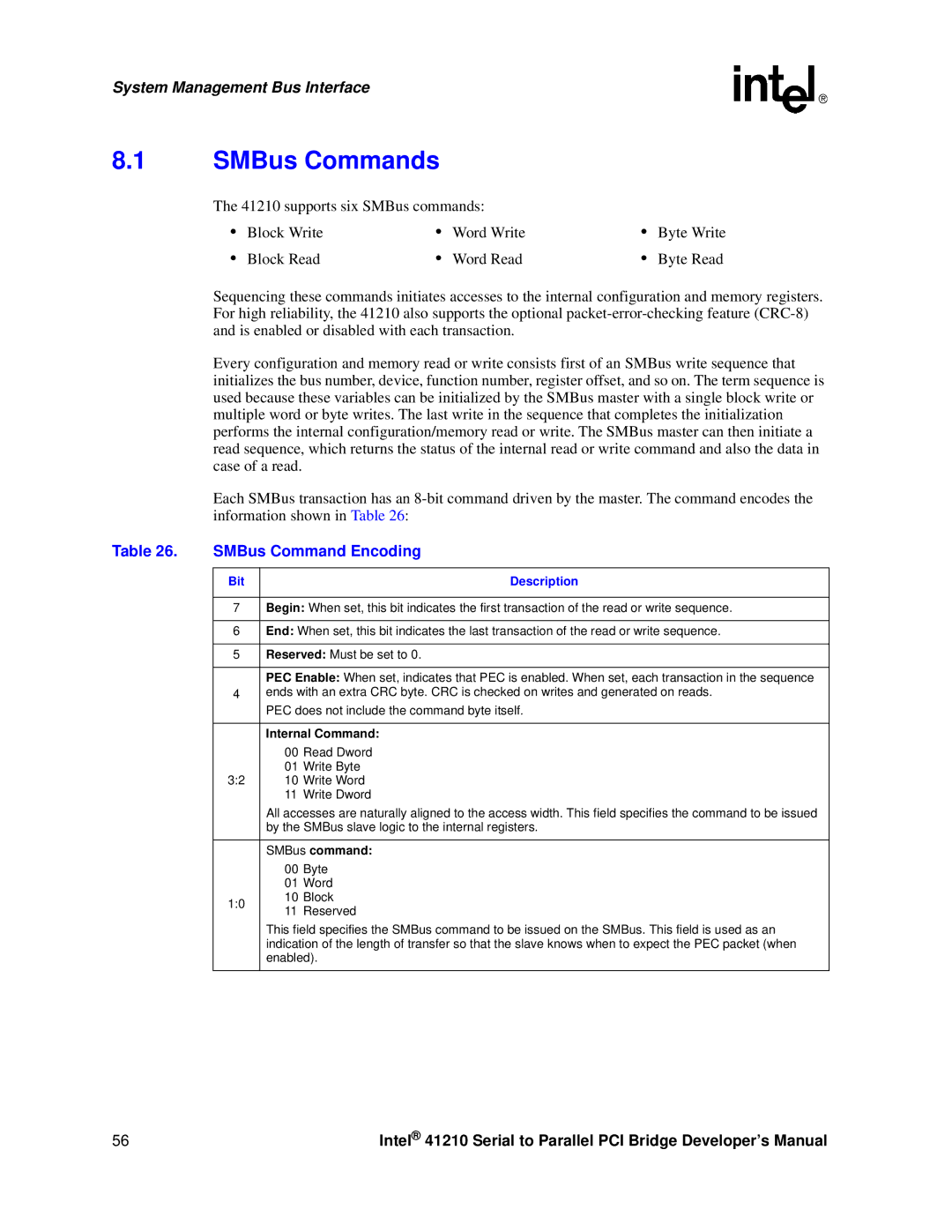System Management Bus Interface
8.1SMBus Commands
The 41210 supports six SMBus commands:
• | Block Write | • | Word Write | • | Byte Write |
• | Block Read | • | Word Read | • | Byte Read |
Sequencing these commands initiates accesses to the internal configuration and memory registers. For high reliability, the 41210 also supports the optional
Every configuration and memory read or write consists first of an SMBus write sequence that initializes the bus number, device, function number, register offset, and so on. The term sequence is used because these variables can be initialized by the SMBus master with a single block write or multiple word or byte writes. The last write in the sequence that completes the initialization performs the internal configuration/memory read or write. The SMBus master can then initiate a read sequence, which returns the status of the internal read or write command and also the data in case of a read.
Each SMBus transaction has an
Table 26. | SMBus Command Encoding | ||
|
|
|
|
| Bit |
| Description |
|
|
| |
| 7 | Begin: When set, this bit indicates the first transaction of the read or write sequence. | |
|
|
| |
| 6 | End: When set, this bit indicates the last transaction of the read or write sequence. | |
|
|
| |
| 5 | Reserved: Must be set to 0. | |
|
|
| |
|
| PEC Enable: When set, indicates that PEC is enabled. When set, each transaction in the sequence | |
| 4 | ends with an extra CRC byte. CRC is checked on writes and generated on reads. | |
|
| PEC does not include the command byte itself. | |
|
|
| |
|
| Internal Command: | |
|
| 00 | Read Dword |
| 3:2 | 01 | Write Byte |
| 10 | Write Word | |
|
| 11 Write Dword | |
|
| All accesses are naturally aligned to the access width. This field specifies the command to be issued | |
|
| by the SMBus slave logic to the internal registers. | |
|
|
| |
|
| SMBus command: | |
|
| 00 | Byte |
|
| 01 | Word |
| 1:0 | 10 | Block |
| 11 Reserved | ||
|
| ||
|
| This field specifies the SMBus command to be issued on the SMBus. This field is used as an | |
|
| indication of the length of transfer so that the slave knows when to expect the PEC packet (when | |
|
| enabled). | |
|
|
|
|
56 | Intel® 41210 Serial to Parallel PCI Bridge Developer’s Manual |
